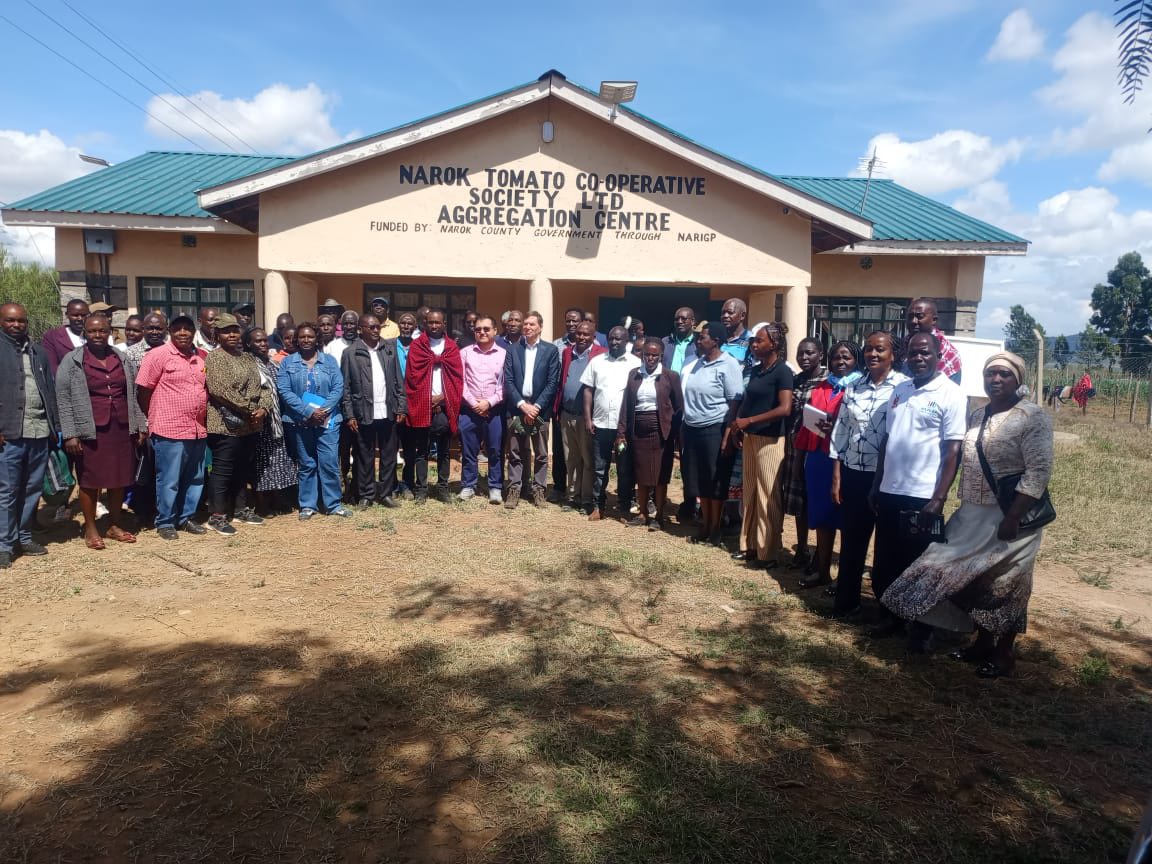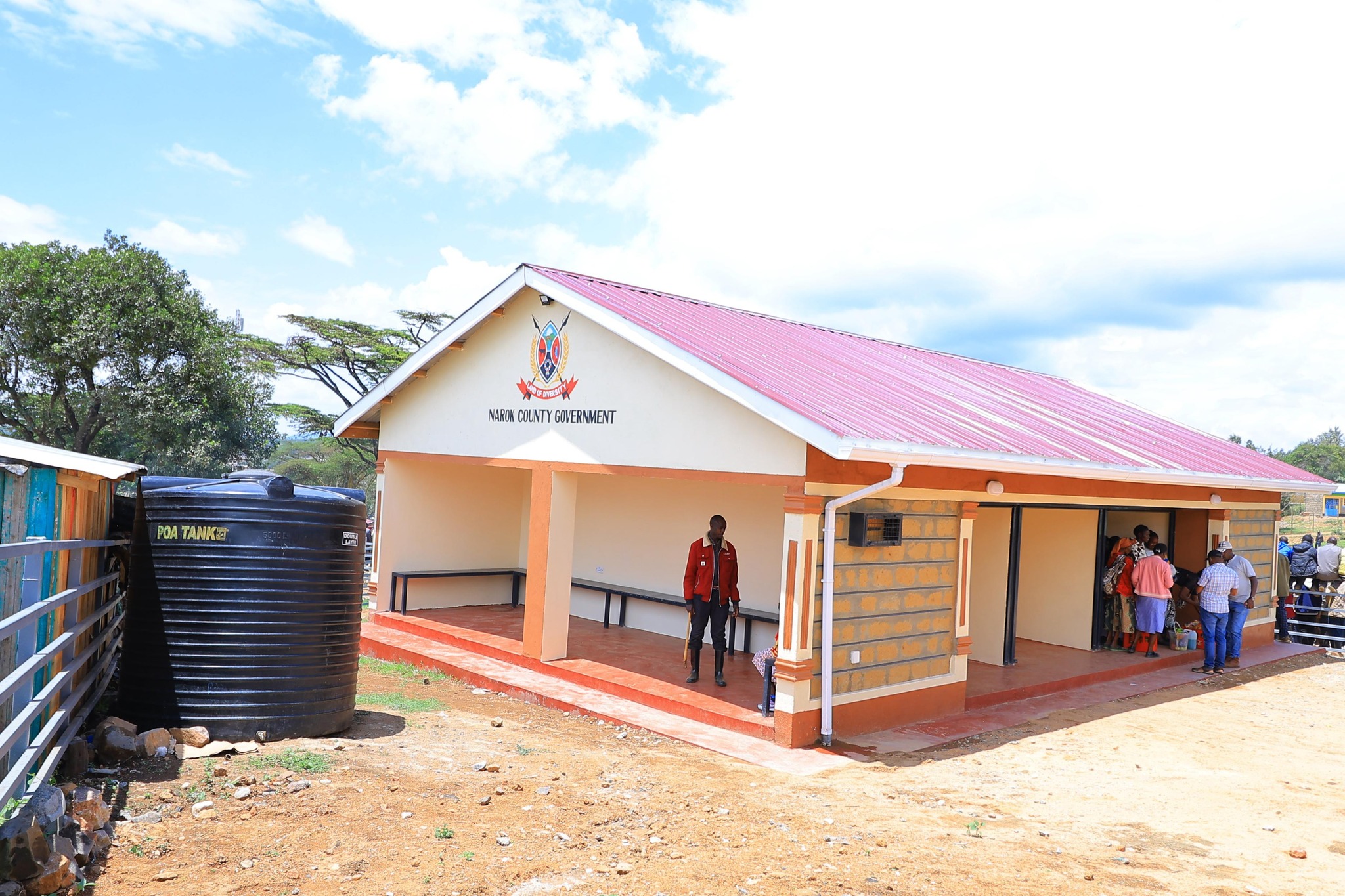Over 3,000 sunflower farmers in Taita Taveta County will soon bid farewell to the costly and exhausting trips to Tanzania for processing their produce, following the groundbreaking of a solar-powered sunflower oil refinery in Taveta on Friday.
The facility, established by the Kenya Red Cross Society through its Integrated Food Security and Livelihood project with funding from the British Red Cross, promises to transform the agricultural landscape in Mata, Bomeni, and Mboghoni wards where farmers have for years grappled with the lack of local processing infrastructure.
The new refinery will be equipped with a solar-powered oil pressing machine capable of processing three tonnes of sunflower seeds every 24 hours.
Beyond eliminating transportation costs, the facility will enable farmers to retain sunflower seed cake, a valuable livestock feed that they have been forced to leave behind with machine owners in Tanzania.

Speaking at the groundbreaking ceremony, Dawson Katuu, the County Executive Committee Member for Agriculture, Livestock, and Fisheries, described the project as a game changer for the county’s economy.
“This refinery means our farmers will no longer have to incur the high costs of transporting sunflower produce to Tanzania for processing. They will now benefit fully from the value of their hard work right here in Taita Taveta,” Katuu said.
He noted that farmers will get good value for their produce after processing compared to when they sell raw, and expressed optimism that the banana and rice milling plants currently under construction will be operational by the end of October.
The journey to establishing the refinery began in 2023 when the Kenya Red Cross Society supported about 100 farmers to venture into sunflower farming. Following a bumper harvest, the farmers identified processing as their biggest challenge.
ALSO READ:
PSs to spearhead roll out of Nyota Youth Programme in counties
Evelyn Kisamo, County Coordinator for the Kenya Red Cross Society, explained that the farmers’ complaints about losing valuable residue in Tanzania prompted the initiative.
“Upon supporting farmers with seeds, the biggest problem that farmers raised was lack of processing machine as most of the farmers had bumper harvest and they were going to Tanzania for processing which they said they are forced to leave behind the residue to the machine owners. They said that the residue is very important as a livestock feed to farmers,” she said.
Kisamo added that through collaboration with agricultural officers, they have successfully mapped out close to 3,000 farmers and identified clusters with key leaders who will be trained on management. These farmers will form a community-based organization to run the facility.
The choice to power the refinery entirely with solar energy has been lauded as both economically prudent and environmentally sustainable. Tiju Aziz, Chairperson of the Taita Taveta County Kenya Red Cross, emphasized the cost-saving benefits of this approach.
“The facility will be run on solar energy and there will be no cost incurred in the use of electricity nor fuel,” Aziz said, urging all sunflower farmers to register with the CBO that will manage the operation.
Mohammed Rajab, Kenya Red Cross Society Coast Regional Program Coordinator, emphasized the need for community ownership and protection of the project.
“If the machine breaks down now, we shall have shutdown hopes of our next generation and their grandchildren,” he warned, noting that for many years there has been no sunflower processing plant in the area.
Rajab appreciated the British Red Cross for their continued support since 2022 and pleaded with residents to protect the facility, emphasizing that if well maintained, it will serve current and future generations.
ALSO READ:
Gov’t to launch Good Quality Milk certification programme to protect milk exports, boost quality
The project has also been welcomed for its wider economic implications. Gertrude Shuwe, CECM for Trade, Tourism, Gender and Industrialization, described it as an industrial catalyst that extends beyond agriculture.
“Since devolution set in, Taita Taveta had only one industry, which is the sisal industry, but things are now changing especially with the introduction of sunflower processing plant,” Shuwe said, adding that the banana processing and rice milling plants are also being constructed in Taveta sub-county.
She urged residents to embrace and protect the project for their own benefit, noting its potential to boost trade, tourism, and attract investors.
CECM for Youth, Sports, Gender and Social Services, Shedrack Mutungi, praised the timing of the investment, highlighting the employment opportunities it will create for young people and women in the agricultural value chain.
The facility, once complete, will provide local markets for sunflower produce, reduce post-harvest losses, create jobs, and contribute significantly to food security and household incomes.
By eliminating the need for cross-border processing, it will also reduce the cost of production while empowering farmers to fully benefit from their hard work.
By Michael Oduor
Get more stories from our website: Sacco Review.
For comments and clarifications, write to: Saccoreview@
Kindly follow us via our social media pages on Facebook: Sacco Review Newspaper for timely updates
Stay ahead of the pack! Grab the latest Sacco Review newspaper!



